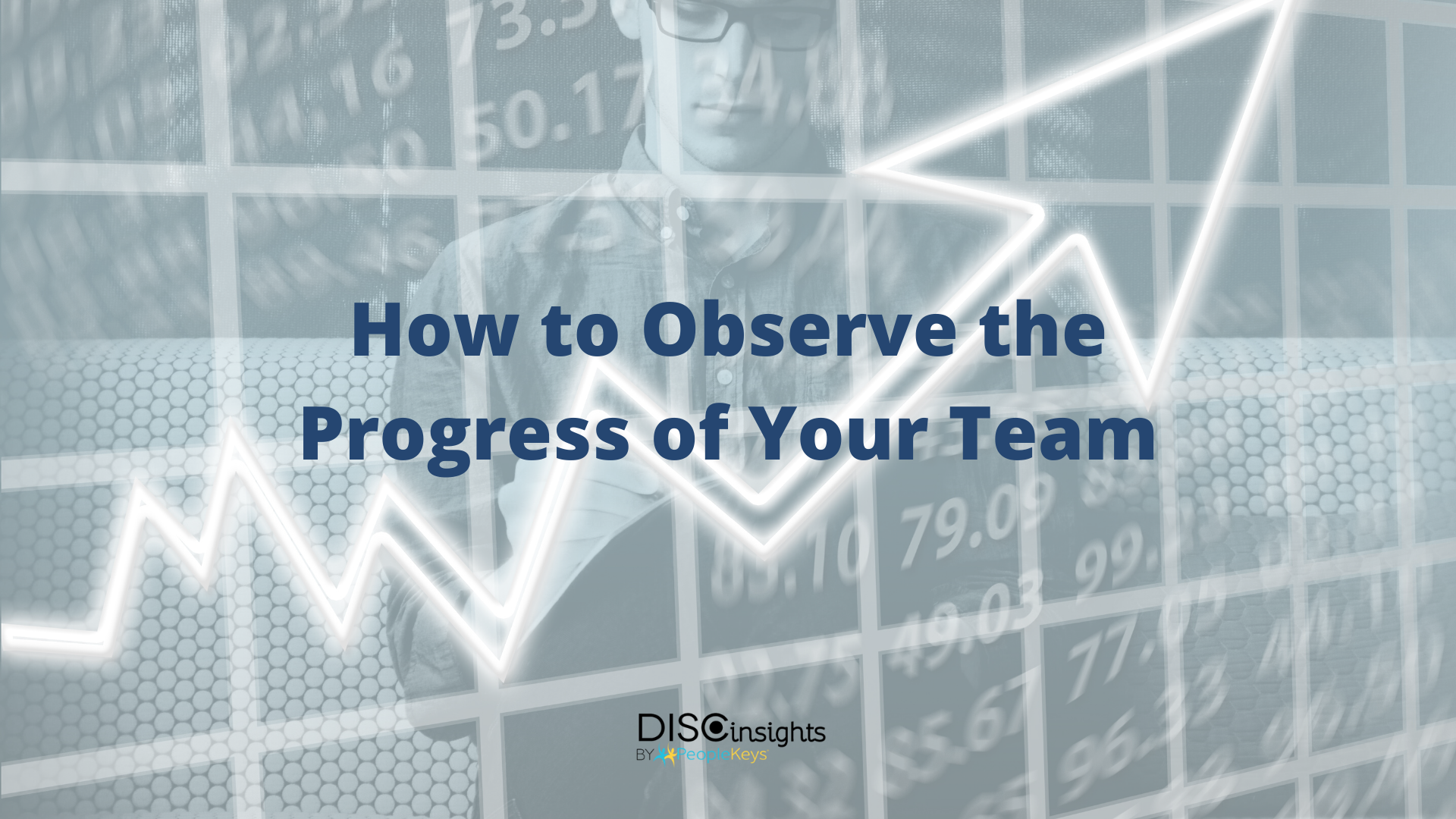- SHOP BY PRODUCT
- DISC TRAINING & CERTIFICATION TOOLS
- DISC RESOURCES
- BLOG
- SHOP BY PRODUCT
- DISC TRAINING & CERTIFICATION TOOLS
- DISC RESOURCES
- BLOG
- ALL ITEMS



Some people get the idea of “being busy” confused with “productivity.” Walking into the physical office space can portray a false sense of productivity. In general, you may see people at their workstation typing, answering or returning phone calls, faxing or mailing documents, sitting around the table in the conference room having a meeting; these activities as a whole can suggest work is getting accomplished. However, without directly engaging with the workforce, the appearance of busyness can lead to a false sense of progress. The best way to determine if the team is effectively making progress is by checking or observing. We often take for granted the luxury of having a physical office space to walk around and the convenience of knocking on doors and walking down hallways to the meeting rooms. When it is no longer the option, leaders must prepare the organization for a new, virtual environment!
Since the push from the physical to a virtual office, many leaders may be struggling to determine what progress individuals and teams are making from week to week. While connecting virtually (observation) may be a new and uncomfortable experience for some, leaders can prepare to address those challenges by reviewing the DISC styles and behavioral attitudes of each team member. Knowing one's DISC personality will sensitize the leader to team members who may struggle in areas such as communication, motivation, connection, or focus, and the leader will be able to identify indicators through verbal cues and behaviors they can observe on camera.
It's important to observe the progress of your team; however, after a significant shift in normal operations, establishing a new, predictable schedule allows team members to prepare for virtual observation. Since we've been working remotely and don't see each other in the office as we had, we meet twice a day at 11 AM and 4 PM. This way, we can all collaborate and see each other. We can see how each other are doing and know whether anyone needs any additional instructions for their projects. We can also see if somebody is struggling physically or emotionally and understand whether they need any help. We can all be on the same page and observe each other's progress in a virtual manner. This approach helps our team to stay in communication, and for me to be able to observe the team to see what's happening and know how to help them when they need it.
Understanding the individual personalities of your team and how they combine as a group dynamic during times of significant change will provide major benefits for each of the styles:
Communication and observation are critical actions for leaders to take to remain engaged and informed on team productivity in the virtual environment. It keeps everyone connected, accountable, and on track; mitigating any pitfalls that could otherwise blindly derail teams or the organization from succeeding in its primary mission.
How are you observing your team's progress?

© PeopleKeys. All Rights Reserved
WORKING DAYS/HOURS
Mon - Fri / 8:30AM - 5:00PM EST
